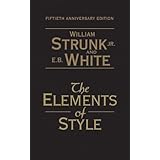A link to my March 25th blog on Writing Wranglers and Warriors
http://writingwranglersandwarriors.wordpress.com/2014/03/25/in-cold-imageblood-innocence-betrayed-sherry-hartzler/
Relationship novels that appeal to the hearts and souls of women everywhere.
Tuesday, March 25, 2014
Saturday, March 15, 2014
FOR THE LOVE OF DICK AND JANE - KEEP IT SIMPLE
Beginning a new writing project, I pull out my dog-eared copies
of On Writing Well, by William Zinsser, and The Elements of Style, by
Strunk/White/Kalman, and begin my mental mantra of “Why do write? Why do I
write? Why do I write?”
Certainly, I don't write for money or fame. Like most writers
out there plugging away at the keyboard, I have more lint in my pockets than
coins. Truth is, I fell in love with books the moment I opened my first Dick
and Jane primer, which is exactly why I need to be reminded to keep my writing
simple and to the point, following the old adage, “Less is More”.
Back in the old-timey days, during the forties, fifties and throughout most of the sixties many classrooms used the Dick and Jane
series. Dick, the clean-cut older brother, Jane, the innocuous middle child, and
Sally, the cute three year old with a riot of blond curls, all coming to life in
those sweet stories of sibling hijinks, along with their dog, Spot, and cat,
Puff. (Note: Did you know that Spot was originally a terrier instead of a Cocker Spaniel?) These stories taught us to repeat words such as up, down, Oh, come, help,
run, look, work, balloon, and rain. Teaching manuals referred to these as “sight
words” or “whole word” learning, instead of phonetically sounding out words.
Dick and Jane primers first appeared in the classrooms in 1930, through
Scott-Foresman Publishing Company, with expert, William S. Gray, and Zerna
Sharp, illustrator. (Note: Ms. Sharp often used the Sears Catalog as a reference for the children's clothing styles) Together, they devised basic primers with identifiable
characters and stories meant to appeal to young age groups.
By the 1970’s, the experts complained that Dick and Jane
didn’t do such a great job teaching us “baby boomers” how to read. And so, with
little or no fanfare, the educators canned Dick and Jane. Could it be that
modern educators tend to over-analyze and complicate "the basics" when it comes to keeping reading simple and a fun learning experience? Just sayin'
 I want to share a few quotes from the fabulous Mark Twain,
whose down to earth witticisms and homespun stories are still loved and appreciated
in our so-called modern world:
I want to share a few quotes from the fabulous Mark Twain,
whose down to earth witticisms and homespun stories are still loved and appreciated
in our so-called modern world:
“The world doesn’t owe you anything. It was here first.”
“All you need in this life is ignorance and confidence, then
success is sure.”
“Never allow anyone to be your priority, while allowing
yourself to be their option.”
“Censorship is telling a man he can’t have a steak, because
a baby can’t chew it.”
Now, without further ado, I’ll collect my ragtag books, On Writing Well, and The Elements of Style, and go to my reading corner and tuck a couple of comfortable pillows under my bum and begin to read, hopefully at a higher grade level than the naysayers of Dick and Jane say I, as a baby boomer, am capable of comprehending. Tsk Tsk.
By the way, if you happen to come across a copy of On
Writing Well, check out Chapter 2 - Simplicity
Interesting reference web sites for Dick and Jane -
http://www.rarebookschool.org/2005/exhibitions/dickandjane.shtml
http://www.tagnwag.com/dick_and_jane_books.html
Mark Twain quotes -
http://www.quotationspage.com/quotes/Mark_Twain/
Sherry Hartzler is the author of Three Moons Over Sedona, Island Passage, and Chasing Joe, all available on Amazon.com
http://www.amazon.com/s/ref=nb_sb_noss/178-1351656-0417943?url=search-alias%3Daps&field-keywords=sherry+hartzler
Wednesday, March 5, 2014
LOG CABIN JOURNAL: SOUP - The Ultimate Winter Comfort Food
LOG CABIN JOURNAL: SOUP - The Ultimate Winter Comfort Food: More snow Ugh. Four inches of the stuff on the ground this morning, the temperature at 5 degrees. Can you believe Tom and I d...
Subscribe to:
Posts (Atom)



.jpg)



.jpg)

